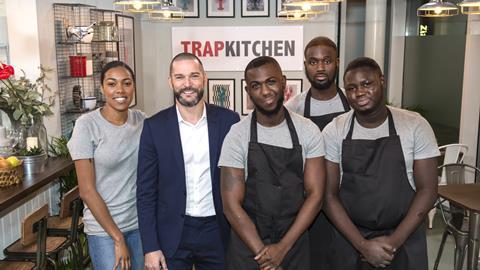Frustrated producers need convincing of appetite for danger
Keynote speeches from Channel 4 chief executive Alex Mahon and BBC entertainment supremo Kate Phillips hit the right notes at Mip TV this week – but the indie community will be waiting to see how their respective pledges to take risks are followed through.
Major producers in the non-scripted space have aired disgruntlement about what they perceive as a lack of bravery and investment from commissioners across the industry.
Channel 4 has been suffering from the inevitable hiatus that comes with regime change, with projects that were well progressed under Jay Hunt or Ralph Lee put on hold or dropped by new director of programmes Ian Katz. Producers understand the reasons for the decisions, but that doesn’t make them any less painful.
However, there are rumours swirling that things are about to swing into gear at Horseferry Road, including the unveiling of some major shows, thought to include a large-scale social experiment. In any case, a statement of strategy is expected shortly from Katz, in which he will unpick his well-worn ‘imp in the machine’ mantra.
Elsewhere, indies consider ITV to be the domain of in-house production more than ever before and believe the BBC should really be trying out more non-scripted formats.
“Fact-ent seems ready for a refresh as much as studio entertainment”
It’s true that some of the grumbles are from unsuccessful producers sounding off after missing out on big orders – but the term ‘risk-averse’ is being increasingly bandied about.
Fact-ent seems ready for a refresh as much as studio entertainment.
Although there is a new wave of BBC shows coming through from the increasingly influential head of popular factual David Brindley – and BBC2 controller Patrick Holland is particularly enthused by the potential of Electric Ray’s food/business hybrid Million Pound Menu (pictured) – the production community is hoping for even more.
There’s no expectation that broadcasters need to reinvent the fact-ent wheel, but the amount of praise being showered on Netflix’s reboot of Queer Eye For The Straight Guy is illuminating.
It’s an example of what can be achieved when a relatively traditional format is given a truly contemporary treatment, expert casting and plenty of financial backing.
“It’s the best thing I’ve seen in ages,” said one UK commissioner out in Cannes – which is slightly depressing, given how much it feels like a really good PSB show.
The industry is quick to judge new shows and tends to pounce on failure. But whether it’s in shoulder peak or in the heart of primetime, a commitment to risk-taking should be applauded, and could end up being seriously rewarded.

Chris Curtis is the editor of Broadcast
































No comments yet